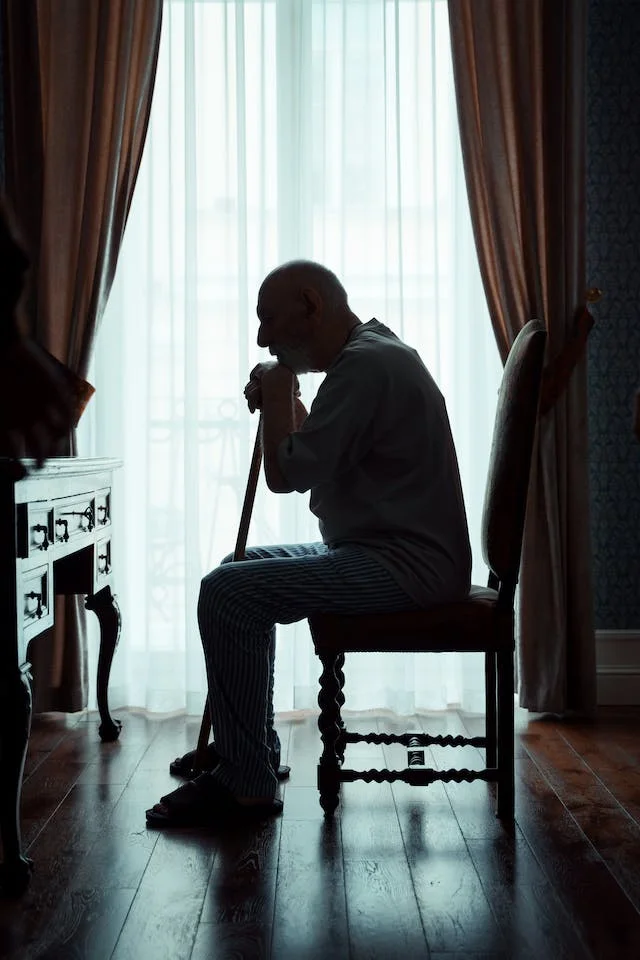10 Things that Dementia Patients Find Offensive
Dementia is a challenging condition that affects millions of people in the world. It can change the way we think, remember, and interact with the world around us. When dealing with dementia patients, it’s essential to be mindful of their feelings and needs.
In this blog post, I will share with you 10 things that a dementia patient may find offensive and why it’s crucial to avoid these actions. Getting to know these aspects will help us provide better care and support for our loved ones with dementia.
Here Are the 10 Things that Dementia Patients Find Offensive
1. Being Corrected Repeatedly
Imagine if every time you made a small mistake, someone corrected you. How would you feel? For dementia patients, being corrected repeatedly can be hurtful. When they forget a name or a fact, it’s not intentional, and they don’t need a reminder. Instead, try to gently redirect the conversation or find a way to make them feel comfortable. Correcting them again and again can make them feel embarrassed, self-conscious, and frustrated.
If your neighbor, who has dementia, says, “I remember that we went to the park with…um…you know, that nice lady,” don’t immediately interject with, “It was Susan, remember?” Instead, try saying, “Yes, we had a great time at the park with Susan. What did you enjoy most about that day?”
2. Being Left Out of Family Conversations
Family gatherings are a time for bonding and sharing stories. Dementia patients still want to be a part of these moments, even if they can’t contribute like they used to. Leaving them out of conversations can make them feel excluded and unimportant. It’s essential to make an effort to include them, even if it means adjusting the way we communicate.
During a family dinner, don’t forget to involve your loved one with dementia in the conversation. Ask open-ended questions or share stories that might trigger their memories, making them feel engaged and valued.
3. Being Left Alone for Longer Periods

Dementia patients may require constant supervision and companionship, especially as the condition progresses. Leaving them alone for extended periods can lead to anxiety and loneliness. It’s important to provide regular social interaction and keep them engaged in activities to reduce feelings of isolation.
If you need to step out for errands, consider arranging for a caregiver to keep your loved one company or engage in activities they enjoy to prevent them from feeling abandoned.
4. Being Treated Like a Child

It’s not uncommon for dementia patients to regress in their abilities, but this doesn’t mean they should be treated like children. Speaking to them in a condescending tone or assuming they can’t make decisions can be demeaning. Respect their dignity and autonomy.
Instead of saying, “You can’t do that, let me handle it,” ask for their assistance and support when appropriate, maintaining their sense of independence and self-worth.
5. Taking Away Their Pet
Pets can be a source of comfort, companionship, and joy for dementia patients. Taking away their pet, which may be their closest friend, can cause immense distress. It’s essential to explore alternatives or ensure that they can safely care for their animal.
If caring for their pet becomes a challenge, consider arranging help or involving a family member to share responsibilities rather than separating them from their beloved companion.
6. Reminding Them of a Sad Event in the Past
Dementia patients may not remember the past as clearly as before. Reminding them of a sad event, such as the death of a loved one, can bring back painful emotions they’ve worked hard to forget. It’s crucial to focus on positive memories and experiences.
Instead of saying, “Remember when your spouse passed away?” you could say, “Let’s talk about a happy memory you shared with your spouse. What made you smile the most?”
7. Giving Household Responsibilities They’re Not Capable Of
Dementia can affect a person’s ability to complete tasks they once handled with ease. Assigning them household responsibilities they can no longer manage is frustrating and may lead to feelings of inadequacy. Adjust their responsibilities to match their current abilities.
If they used to be in charge of meal preparation but can no longer do so safely, encourage them to assist with simpler tasks like setting the table or washing vegetables. This maintains their sense of purpose and participation.
8. Rude Remarks

Rude remarks, whether intentional or not, can be deeply hurtful to dementia patients. They are already facing a challenging journey, and unkind comments only add to their emotional burden. It’s essential to remain patient, kind, and understanding in your interactions.
Instead of responding with frustration when they repeat themselves, say, “I enjoy hearing your stories, even if we’ve talked about them before.”
9. Making Inappropriate Comments
Dementia can affect a person’s filter, causing them to make inappropriate or socially unacceptable comments. While this behavior may be challenging to handle, it’s crucial to respond with empathy and understanding rather than anger or embarrassment.
If your loved one makes an inappropriate comment, try to gently redirect the conversation or change the topic to something more appropriate, helping them save face without feeling judged.
10. Not Accepting Their Help
Dementia patients may want to contribute and feel useful, even if their abilities have declined. Not accepting their help can make them feel unneeded and unimportant. Encourage their participation, as it can boost their self-esteem.
If they offer to help with a task, find a way for them to assist or suggest a related, manageable task they can complete independently. This empowers them to feel productive.
Conclusion
Understanding the needs and sensitivities of dementia patients is essential to providing them with the care and support they deserve. The ten things that we’ve discussed in this article can deeply affect their emotional well-being. It’s our responsibility to be compassionate, patient, and empathetic in our interactions with them.
Dementia patients need our support and understanding more than ever, and by avoiding these offensive actions, we can make their journey through this challenging condition a bit easier. Let’s strive to create a more inclusive and compassionate environment for our loved ones and those around us who are living with dementia.
Now, I’d love to hear from you! Have you encountered any of these situations while caring for someone with dementia? How did you handle them? Please share your experiences and insights in the comments section below.
